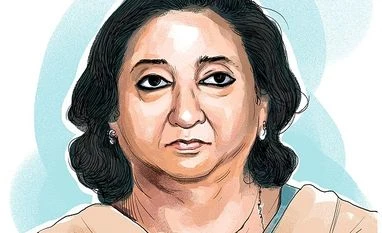What will be on top of your agenda for the next 15 days?
With the legal framework put in place, the next and most important step is to hand-hold the taxpayers and other stakeholders, to ensure their smooth transition into this new regime. We will be focusing on helping them in their compliance requirements.
More From This Section
How prepared is CBEC (to be soon renamed the Central Board of Indirect Taxes and Customs) for the implementation?
We are fully prepared. The new GST formations have come into place since June 22. There are 21 zones, with a total of 107 GST commissionerates and 12 sub-commissionerates. Further divided into 768 divisions and 3,969 ranges. Plus, 48 audit commissionerates and 49 appeal commissionerates. This will ensure taxpayer services.
For a robust information technology network, the Directorate General of Systems has been strengthened. Other key directorates, such as the National Academy of Customs, Indirect Taxes and Narcotics, Directorate General of Taxpayer Services and the Directorate General of Goods & Service Tax Intelligence, have also been expanded.
What difficulties do you foresee in the first month of GST implementation?
The difficulties or glitches that could have been foreseen were addressed before the roll-out. As such a huge transition is unprecedented, a glitch-free roll-out will be expecting too much. However, the department is fully prepared for the transition and any issues that come forward will be resolved within the best time possible.
How will the Centre compensate states on a shortfall in cess collection in a particular year?
By and large, the rates of all commodities have been fixed keeping in mind the incidence of taxes prior to GST. So, for commodites attracting compensation cess. Further, the basic structure of GST is such that it will increase compliance. That being so, there should not be a shortfall in cess collection. The GST Council can decide on raising the compensation rates on any of the existing commodities attracting the cess or for including any other supplies which might attract the cess if a need arises.
Will the government look into the concerns of the textile sector? And, smaller players are learnt to be grappling with return filing, three in a month.
Broadly, the fitment committee has already taken into consideration the concerns of various sectors while finalising the rates on all items. With regard to returns, essentially, there is only one return that taxpayers have to file themselves, which has details of the outward supplies made by them. The other returns are auto-populated by the system itself, from the details captured regarding outward supplies. Further, small taxpayers selling within a state, are required to give only a summary of the sales made by them, not the invoice-wise details.
Some companies have cut prices after GST roll-out. Is it to do with fear of the anti-profiteering law?
With seamless flow of input tax credit, prices of various commodities are likely to come down. The government considers trade and industry as an important stakeholder in passing on the benefits of GST to consumers. Further, competition within the sectors itself is an anti-profiteering mechanism. That being so, I see the anti-profiteering provision only as a last resort, when other factors fail to convince any company to pass on the benefits of GST to consumers.
Companies are learnt to be stopping dispatches for the next 10 days to upgrade their software. Will the government intervene?
The roll-out date had been announced well in advance. That being so, the majority of companies had already geared up their information technology systems and software. Thus, fear of the roll-out impacting supplies appears ill-founded.
What issues remain on GST that will be addressed over the next few months?
The majority of issues have been resolved in the 18 meetings of the GST Council held so far. Any other issue that might require a decision will be brought before the Council in due course.
How will the department deal with legacy cases in service tax and excise duty?
The necessary notifications for reorganisation of field formations for legacy work under the central excise and service tax laws, and fresh work related to the central excise laws for the remaining excisable commodities, have also been issued. The intent is that the GST jurisdictions and the new central excise and service tax jurisdictions will be co-terminous. Suitable provisions have also been provided in the laws for handling legacy issues.
To read the full story, Subscribe Now at just Rs 249 a month
Already a subscriber? Log in
Subscribe To BS Premium
₹249
Renews automatically
₹1699₹1999
Opt for auto renewal and save Rs. 300 Renews automatically
₹1999
What you get on BS Premium?
-
Unlock 30+ premium stories daily hand-picked by our editors, across devices on browser and app.
-
Pick your 5 favourite companies, get a daily email with all news updates on them.
Full access to our intuitive epaper - clip, save, share articles from any device; newspaper archives from 2006.
Preferential invites to Business Standard events.
Curated newsletters on markets, personal finance, policy & politics, start-ups, technology, and more.
Need More Information - write to us at assist@bsmail.in
)